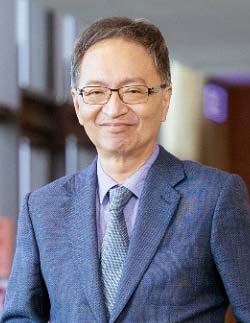As the world enters the fourth year of the covid-19 pandemic, the situation is gradually improving. Most border restrictions have been lifted, and global health governance has shifted from a pandemic response to a post-pandemic recovery. Countries around the world have intensified efforts to achieve health and well-being for all and advance the realization of the United Nations Sustainable Development Goals (SDGs), whose progress has been affected by the pandemic.
Taiwan fully supports the health-related SDGs and the “triple billion targets” of the World Health Organization. In fact, Taiwan is committed to building a more resilient and equitable healthcare supply chain, maintaining an inclusive and equitable universal health coverage system, and providing disease prevention and management through a strong primary care healthcare system. . Taiwan stands ready and able to share its experience in creating an innovative, people-centered, intersectoral approach to health to help the international community work towards the realization of the health and well-being related SDGs.
During the COVID-19 pandemic, Taiwan effectively mitigated the spread of the disease by leveraging its comprehensive public health system, well-trained anti-pandemic staff, and epidemiological analysis, investigation, and surveillance systems. Taiwan’s pandemic response model included advanced deployment and rapid response mechanisms. Other measures included border control policies, coordinated distribution of medical resources and a patient transfer system to prevent and contain the pandemic at a time when vaccines and antiviral drugs were not available.
The Taiwanese people have played a critical role in the success of Taiwan’s anti-pandemic model by wearing face masks, practicing social distancing, avoiding crowded areas, following quarantine regulations, and vaccinating. Compared to the 38 member states of the Organization for Economic Co-operation and Development (OECD) plus Singapore, Taiwan ranks sixth lowest in COVID-19 mortality and fatality rates. Taiwan also ranks fourth in terms of coverage rates of at least one dose of covid-19 vaccine, and third in terms of booster vaccinations administered.
Health promotion for all
Last year, the Director-General of the World Health Organization (WHO) outlined five priorities for the next five years, which are: health promotion, health service delivery, health protection, driving progress and implementation. In addition, WHO’s “Achieving Wellness: A Draft Global Framework for Integrating Wellbeing into Public Health Using a Health Promotion Approach” further demonstrates its commitment to health for all.
In 1995, Taiwan established a universal health insurance system. Since then, the government has continued to provide health services and disease prevention so that people of all ages can enjoy the right to health. Taiwan offers prenatal checkups, gestational diabetes screening, anemia testing, and three ultrasound exams to reduce pregnancy risks and promote maternal and child health. To help infertile couples and reduce the financial burdens of IVF, the government has continued to expand subsidized infertility treatment programs. Taiwan also aims to create a supportive environment for breastfeeding and provide preventative pediatric health care and health education.
In addition, Taiwan has established a series of prevention and management programs for noncommunicable diseases. For example, programs that focus on chronic metabolic diseases help risk groups by providing services such as diet and exercise counseling, as well as information on smoking cessation and betel nut, empowering people to take Control your own health. Such initiatives improve lives and reduce the prevalence of high blood pressure, high cholesterol, and high blood sugar, which often lead to chronic disease. Taiwan also supports the global fight against cancer and the WHO goal of reducing cancer mortality by 25% by 2025. According to the WHO Cervical Cancer Elimination Initiative, Taiwan subsidizes cervical cancer screening cervical cancer screening and human papillomavirus (HPV) vaccines. HPV vaccines have been administered to female students between the ages of 12 and 15 since 2018. As of December 2022, a coverage rate of 92.1% had been achieved.
Innovative technology and universal health coverage
Taiwan’s National Health Insurance (NHI) is an excellent example of universal health coverage, offering financial protection and access to a wide range of essential services. The covid-19 pandemic helped the international community to recognize the importance of regional cooperation and digitization in health care. Taiwan is committed to promoting digital health and innovation to improve the accessibility and quality of healthcare services, including plans for a next-generation NHI program. Taiwan has introduced innovative healthcare services, using real-time telehealth consultations for patients residing in remote areas and outer islands, and is exploring applications of artificial intelligence and other emerging technologies. During the pandemic, Taiwan issued 13 export licenses for its herbal formula NRICM101 (Taiwan Chingguan Yihau) to help countries in the region combat the pandemic. Taiwan is currently implementing preventive measures for the post-pandemic era, such as strengthening domestic production of critical drugs and active pharmaceutical ingredients to prevent future drug shortages. Understanding how important it is to work with the international community, Taiwan will further share innovative technologies and best practices with partners around the world to advance universal health coverage.
Taiwan can help, and Taiwan is helping
Taiwan has not been invited to the World Health Assembly since 2017. As the Covid-19 pandemic is waning and dialogue on strengthening health systems around the world is accelerating, Taiwan must not be left out. . Taiwan can help, and including Taiwan would make the world healthier, more sustainable, and more equitable.
Taiwan urges WHO and all relevant stakeholders to support Taiwan’s inclusion in the World Health Assembly as an observer, as well as Taiwan’s full participation in WHO meetings, mechanisms and activities. Taiwan will continue to work with the world to help guarantee the fundamental right to health enshrined in the WHO Constitution. In the spirit of the SDGs, no country should be left behind, especially Taiwan, which has made significant contributions to global public health.
